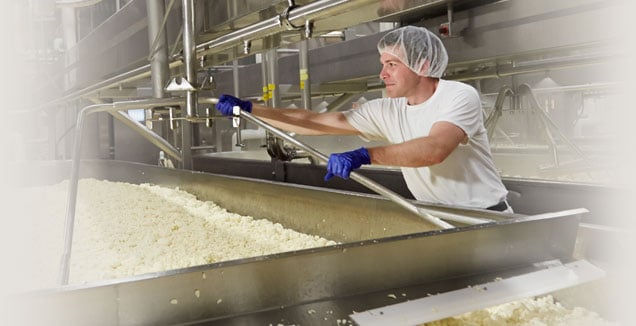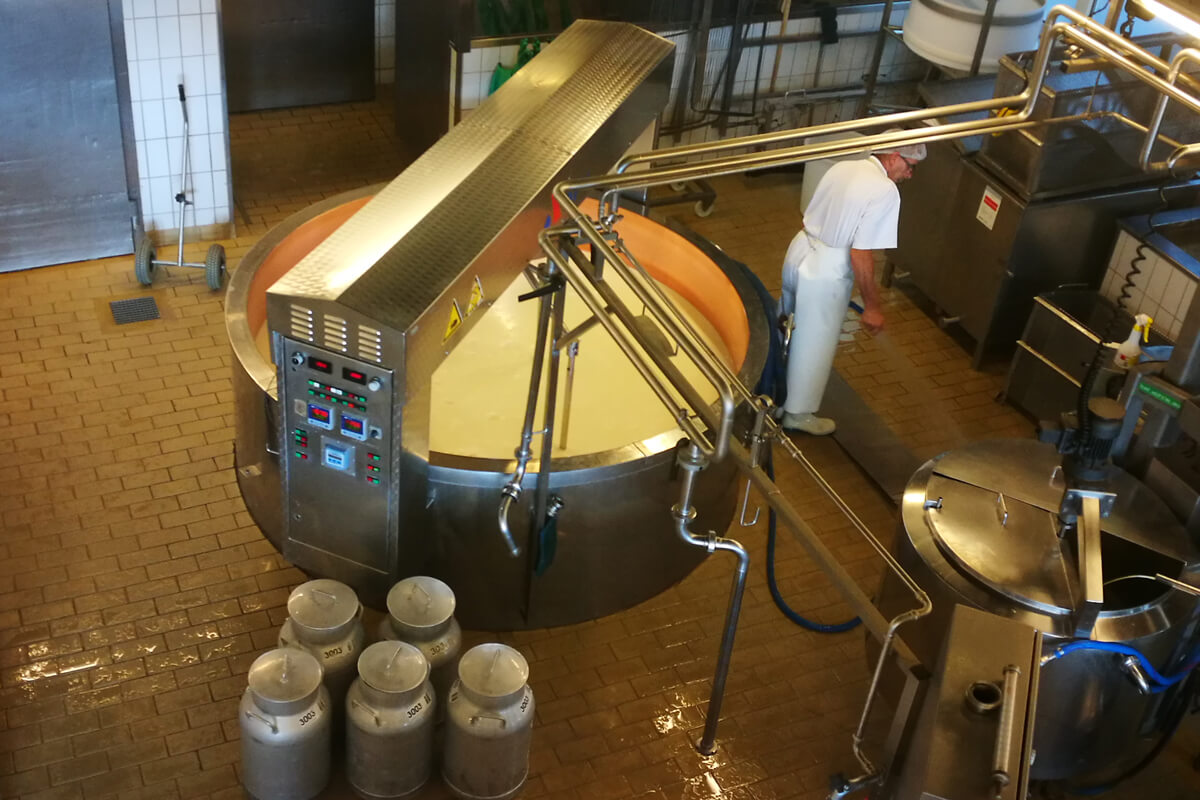Check Out the Premier Cheese Shop Melbourne for Premium Selections
Check Out the Premier Cheese Shop Melbourne for Premium Selections
Blog Article
An Extensive Consider Cheese Manufacturing: Components, Techniques, and the Future of Artisan Cheeses
The detailed procedure of cheese production is an interesting convergence of art and scientific research, where high-quality milk, rennet, and particular microbial cultures function as foundational aspects. Standard methods, such as salting and aging, are matched by modern advancements that reply to developing consumer preferences. As the market significantly prioritizes sustainability and transparency, the future of artisan cheeses promises to reflect both heritage and progress. Recognizing the nuances of these methods raises compelling questions about the instructions of cheese manufacturing and its implications for quality and authenticity. What lies in advance in this developing landscape?
Trick Ingredients in Cheese Manufacturing
A range of necessary active ingredients play a pivotal duty in cheese manufacturing, each adding to the last product's flavor, texture, and character. The key active ingredient in cheese is milk, which can come from various resources, including cows, goats, and lamb - cheese shop melbourne. The sort of milk used significantly influences celebrity's taste and consistency; for instance, cow's milk typically produces creamier cheeses, while goat's milk commonly creates appetizing ranges
Another crucial ingredient is rennet, an enzyme used to curdle the milk, dividing it into curds and whey. The source of rennet can be animal, vegetable, or microbial, each presenting unique qualities to celebrity. Societies, containing details pressures of germs, are additionally essential to the cheese-making procedure. They ferment lactose right into lactic acid, aiding in taste growth and structure.
Salt not only boosts the taste but also serves as a chemical, hindering the development of undesirable germs. Additionally, different flavor agents, such as herbs, seasonings, or even smoked wood, can be included in create special artisanal cheeses. Together, these components develop the structure of cheese production, establishing the phase for diverse and abundant cheese varieties.
Typical Cheese-Making Strategies
Using traditional cheese-making techniques, craftsmens around the world preserve classic methods that have been given with generations. These techniques frequently stress using premium, locally sourced milk, which is main to the unique tastes and structures of artisanal cheeses. The process normally begins with the cautious home heating of milk, followed by the enhancement of societies and rennet to facilitate coagulation.
When the curds create, they are reduced, allowing whey to drain, a vital step that influences moisture material and appearance. Salting is a necessary aspect of this process, enhancing taste while also acting as a chemical.
Aging, or affinage, is another critical component, throughout which cheeses establish their characteristic scents and tastes. Craftsmens might utilize particular maturing settings, using humidity and temperature level controls to improve the cheese's profile. The commitment to these traditional approaches not just supports regional economies however additionally adds to the abundant diversity of cheese varieties discovered around the world, commemorating social heritage and artisanal workmanship.
Modern Developments in Cheese Manufacturing
Just how have technological improvements changed cheese production in recent years? The assimilation of contemporary innovation has revolutionized both the efficiency and top quality of cheese production.
Furthermore, innovations in microbiology have actually allowed cheesemakers to select specific bacterial cultures and enzymes, optimizing flavor profiles and enhancing service life. Making use of sensing unit technology for checking fermentation problems has also come to be prevalent, enabling real-time modifications to keep ideal settings for cheese aging.

These improvements not just improve the high quality and sustainability of cheese production but likewise encourage artisan manufacturers to keep standard flavors while welcoming contemporary effectiveness. As modern technology proceeds to evolve, the future of cheese manufacturing looks encouraging, blending tradition with development.
The Role of Terroir in Cheese
In the realm of cheese manufacturing, terroir plays an essential role in specifying the distinct features of different cheeses. Terroir, a French term traditionally linked with red wine, encompasses the environmental aspects that affect farming products, consisting of soil make-up, environment, and regional vegetation and fauna. In cheese-making, the distinct qualities of the area where the milk is sourced can convey specific tastes and textures to the last product.
For example, the grazing problems of dairy pets considerably affect the milk's composition, influenced by the sorts of grasses and herbs readily available in a specific place. This differs not only between nations yet also between areas within the very same nation. Furthermore, the microbial communities existing in the setting add to the fermentation procedures, causing diverse accounts in flavor and aroma.
Cheeses such as Roquefort, Parmigiano-Reggiano, and Cheddar exhibit how terroir can shape their identifications, making them distinctive and frequently protected by geographical indications. As manufacturers increasingly recognize the relevance of terroir, there is an expanding focus on sourcing neighborhood active ingredients and maintaining standard methods, guaranteeing that each cheese really shows its origin.

Future Fads in Craftsmen Cheeses
A noteworthy change is taking place in the artisan cheese sector, driven by progressing consumer preferences and technical developments. Progressively, customers are being cheese for sale online attracted toward unique, high-quality products that highlight both sustainability and neighborhood sourcing - cheese store melbourne. This fad is motivating artisan cheesemakers to introduce, focusing on small-batch production and the usage of traditional techniques while integrating modern-day innovation to improve top quality and safety and security
Furthermore, there is an expanding passion in plant-based and different milk items, pushing traditional cheesemakers to check out new avenues, such as cashew or almond-based cheeses. This change not just accommodates nutritional restrictions but additionally straightens with environmental worries regarding animal agriculture.
Additionally, openness in sourcing and production procedures is becoming paramount. Customers are much more informed and need traceability, prompting manufacturers to adopt clearer labeling techniques and involve in storytelling that highlights their approaches and worths.
Verdict
In final thought, the intricate process of cheese production blends traditional strategies with modern technologies, causing a diverse variety of tastes and appearances. The focus on premium components and the influence of terroir highlight the artistry involved in cheese manufacturing. As the sector evolves, a concentrate on sustainability and transparency will likely form the future of artisan cheeses, accommodating a significantly discerning customer base that values credibility and craftsmanship in dairy items.
Report this page